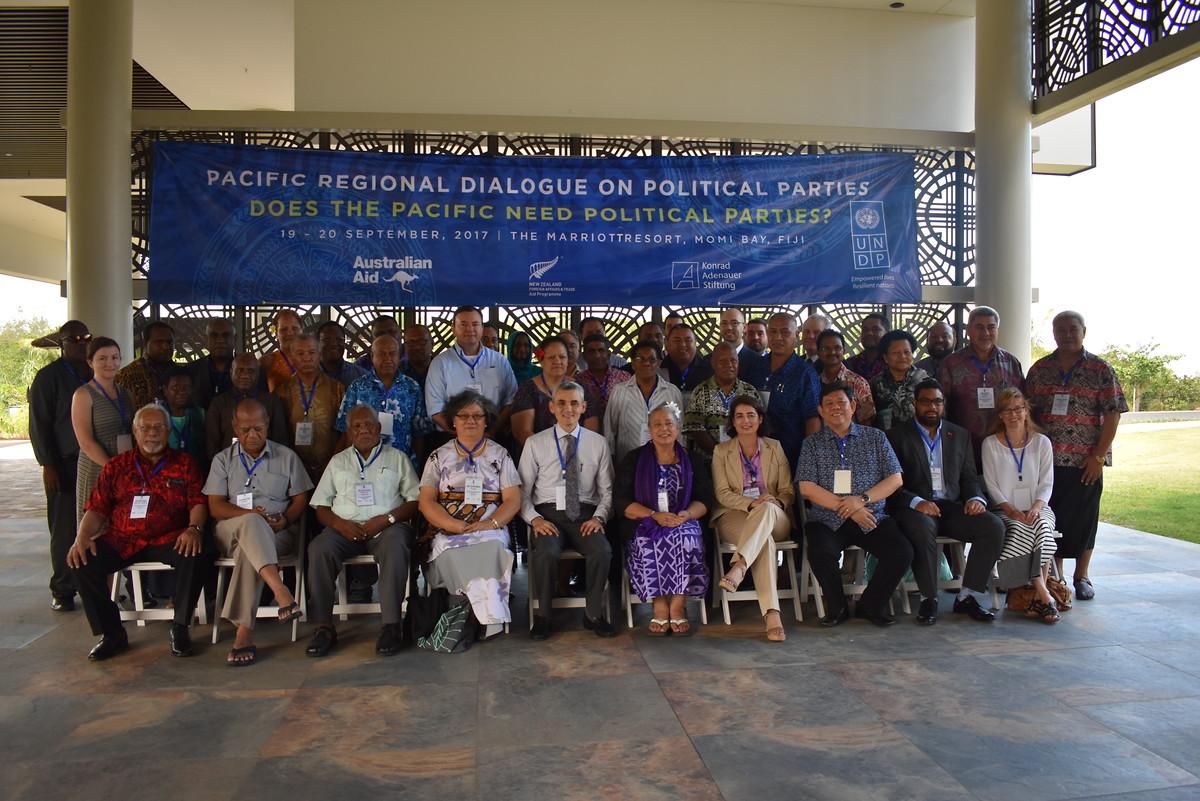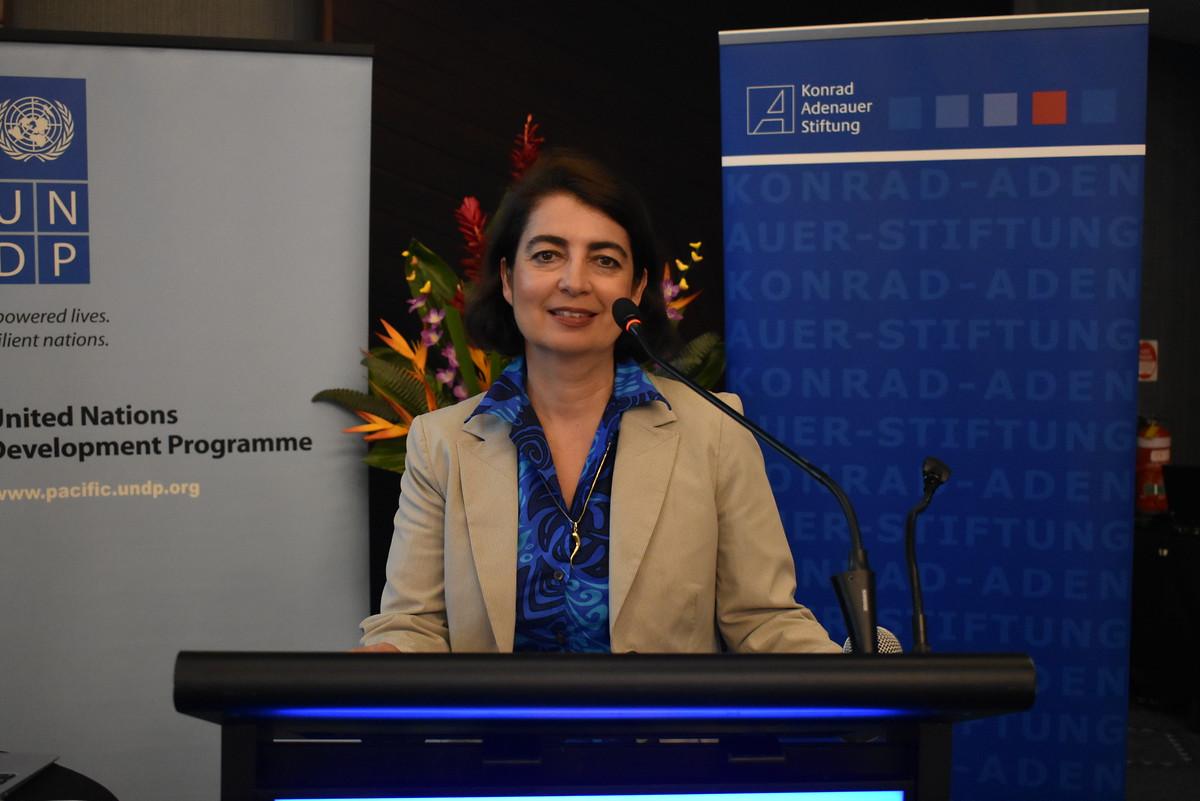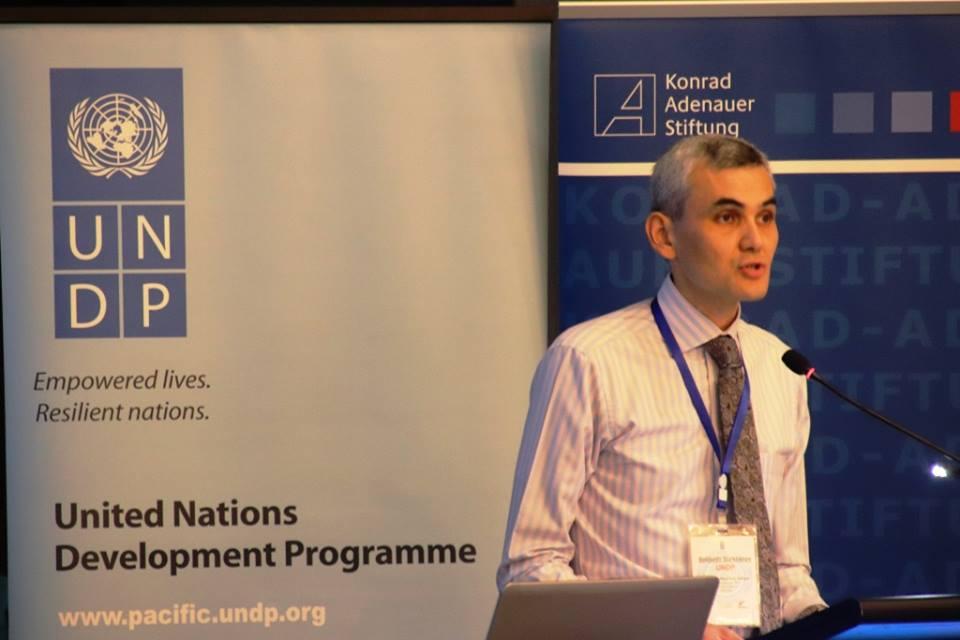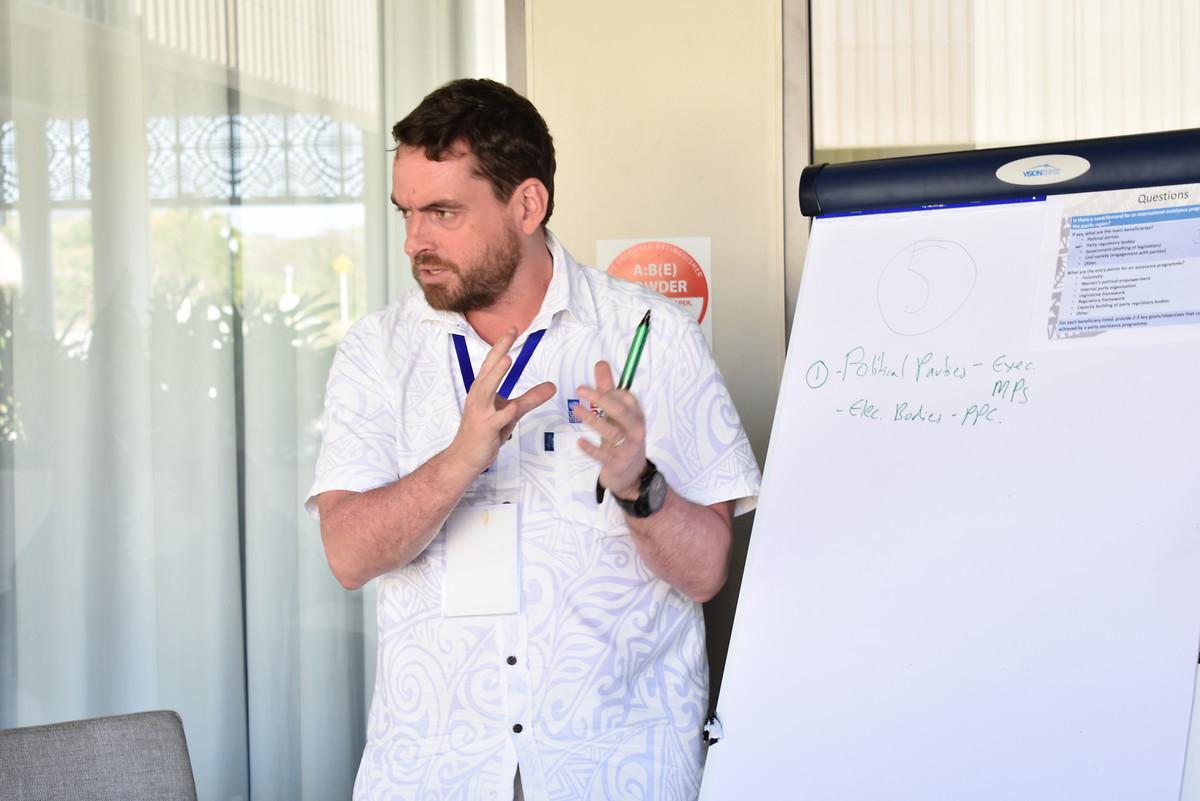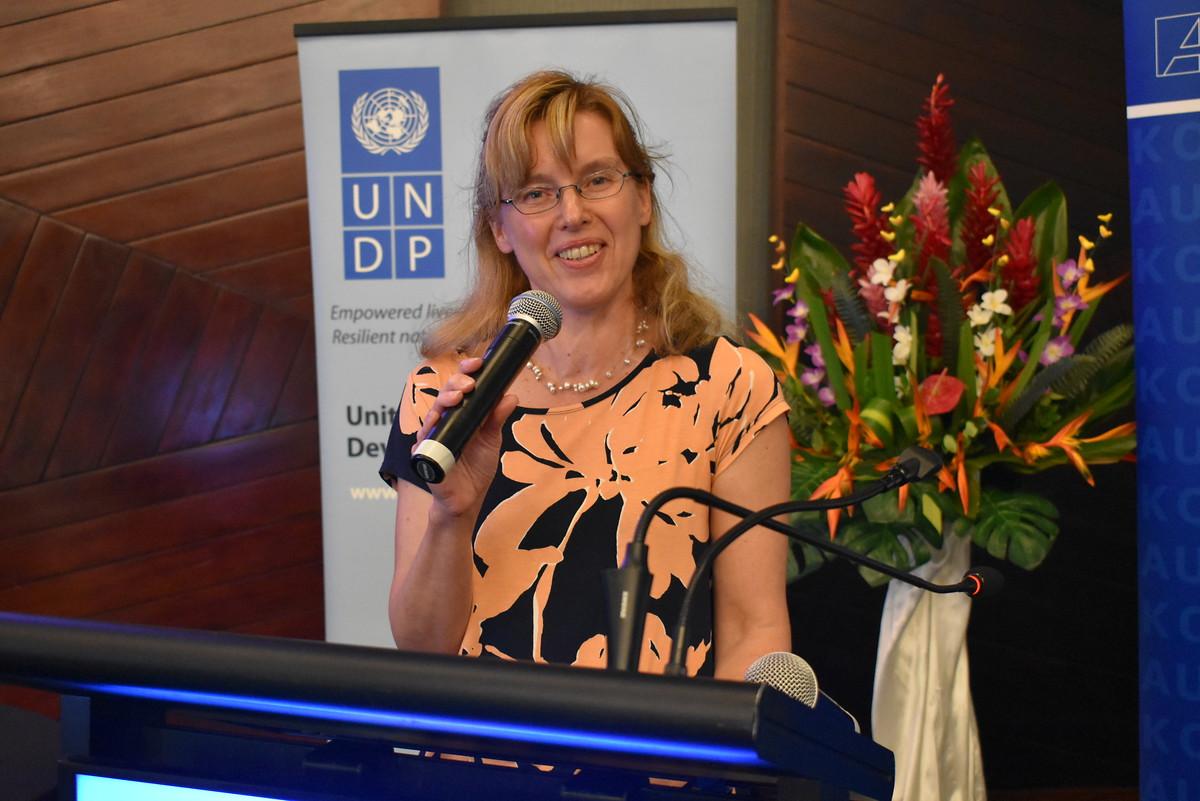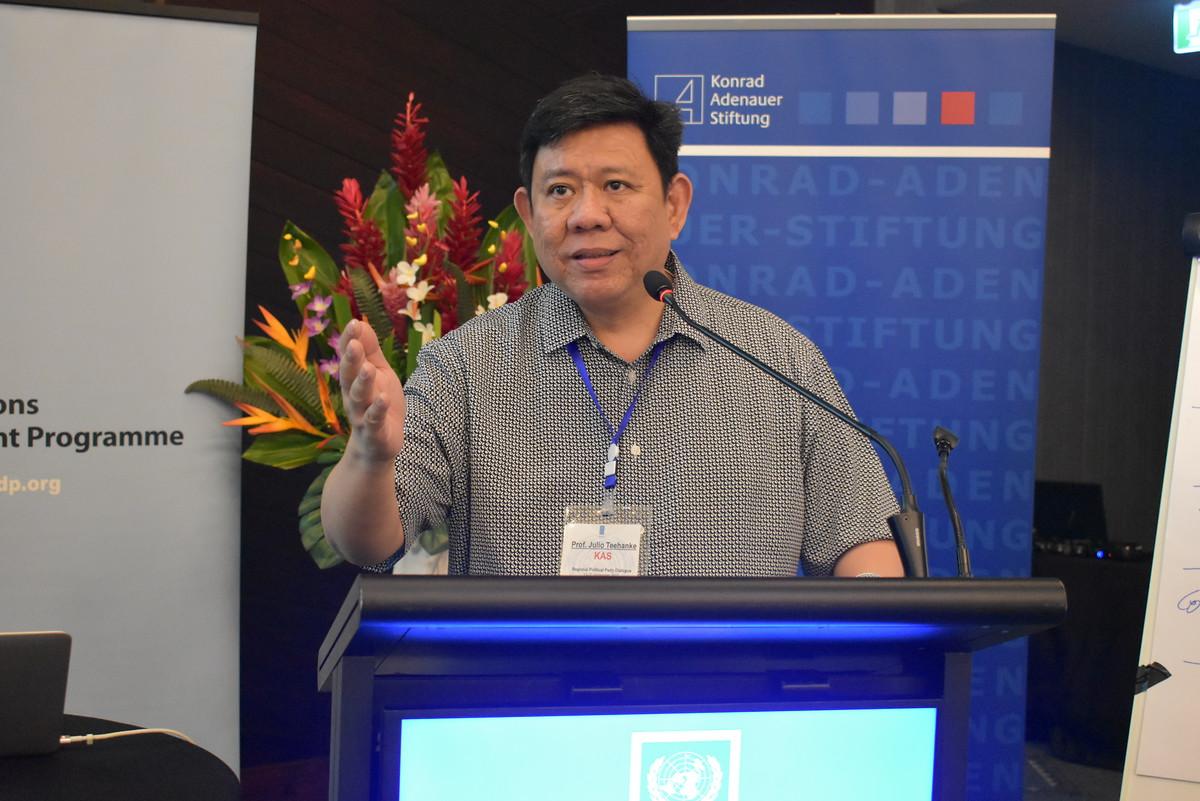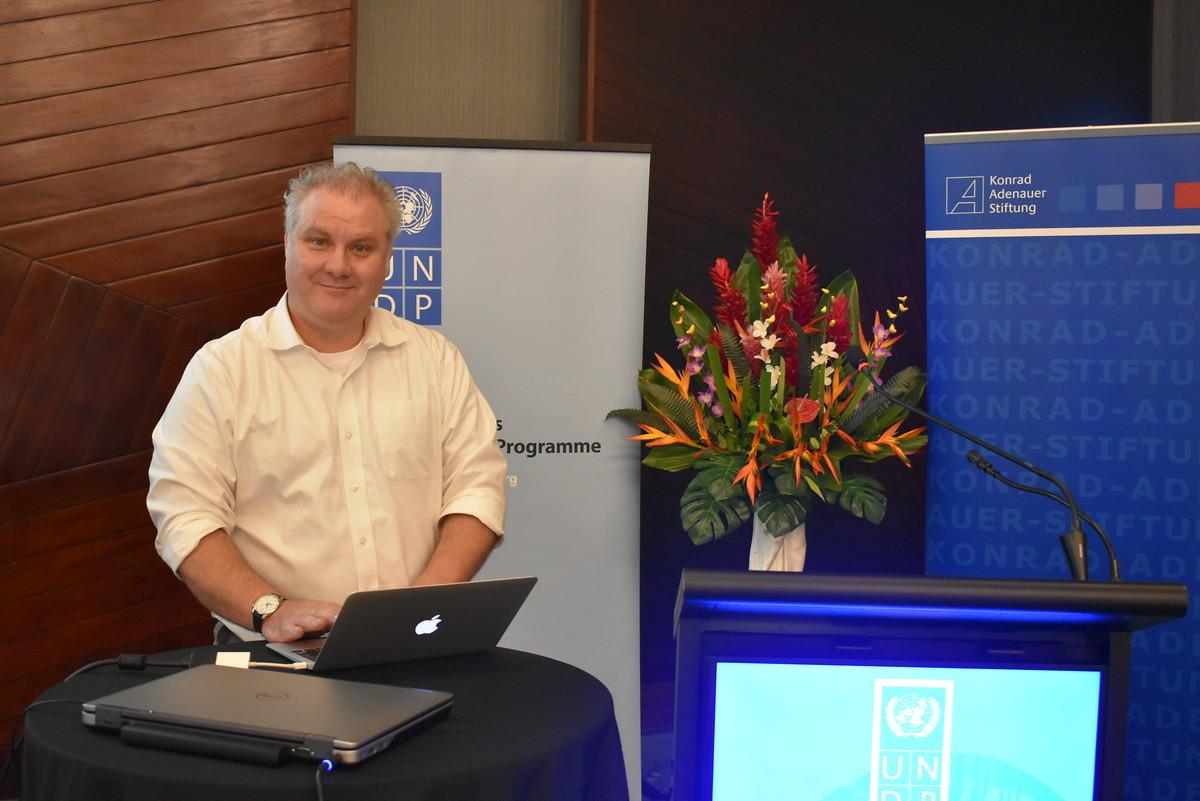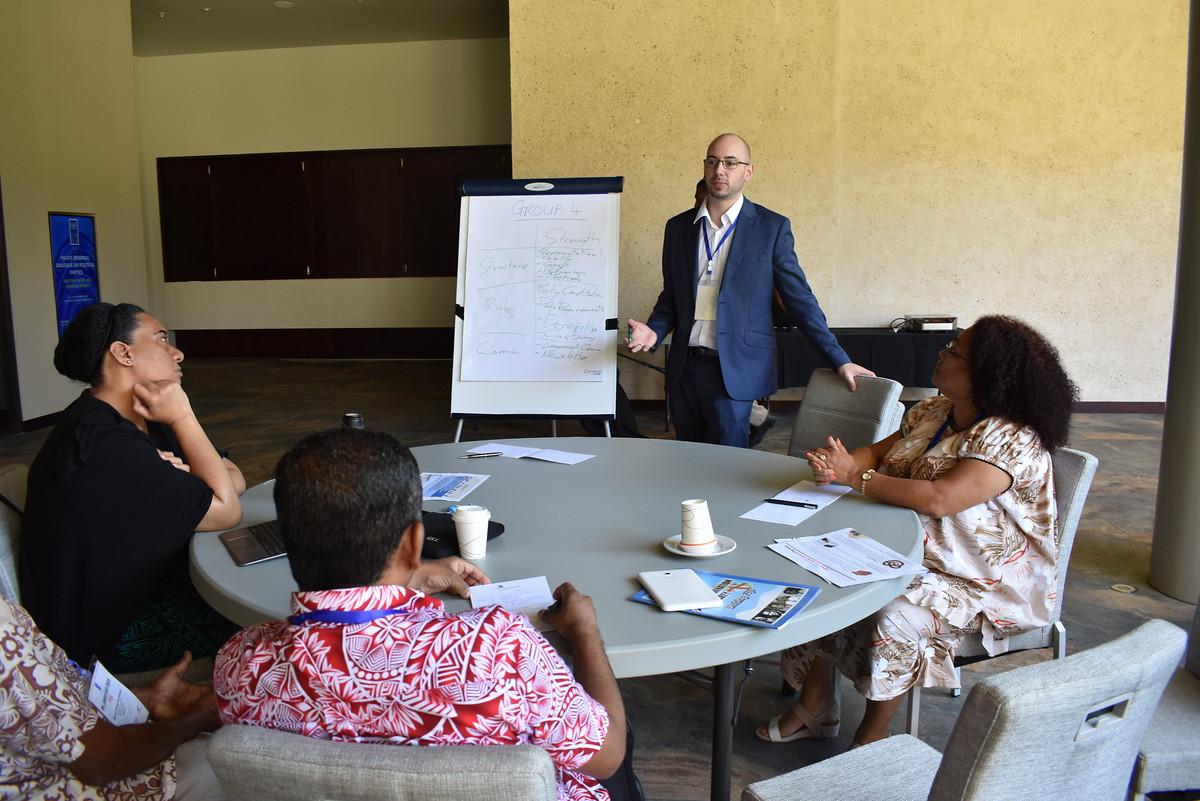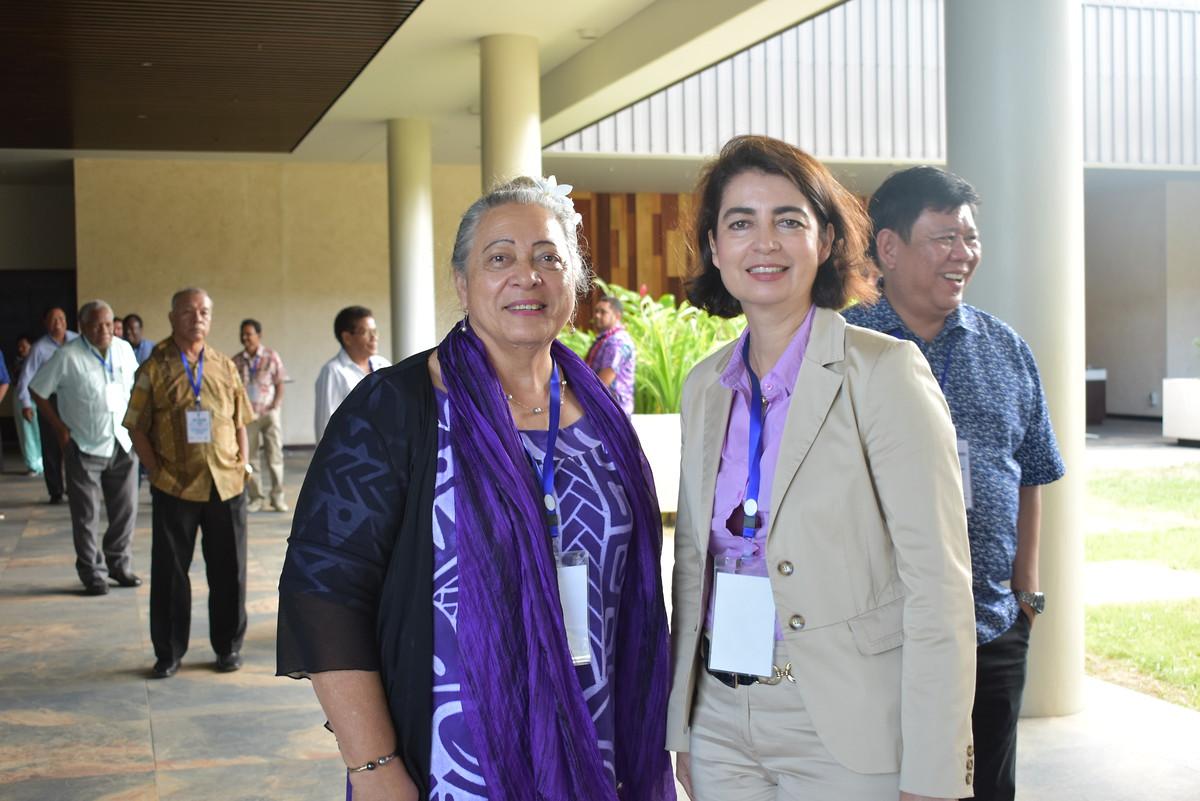Event reports
As many of the political parties in the South Pacific are still young and in the process of development, a "Pacific Regional Dialogue on Political Parties" was organized in cooperation with the UNDP to promote the sustainable development of political party structures. The overall aim of the dialogue was to promote a common understanding of the democratic processes in the South Pacific and to identify possible links for future cooperation.
More than 40 representatives of various political parties and electoral commissions from Fiji, Papua New Guinea, Tonga, Vanuatu, Solomon Islands, Cook Islands, Kiribati, Marshall Islands and Samoa participated in this dialogue. The workshop provided an overview of the role and function of political parties in democratic societies and also facilitated a knowledge exchange between participants in the South Pacific. Furthermore, it identified the similarities and the challenges facing political parties in the Pacific.
Political parties, as an interface between civil society and the decision-makers of government, play a central role in upholding the basic principles of a liberal democracy. Bakhodir Burkhanov, UNDP Country Director and Head of the Pacific Regional Policy Program, emphasized that political parties have an important role to play in the development of liberal democracies in the South Pacific. Although the conditions may differ in each of the participating countries, all political parties are required to have an open exchange with civil society in order to be able to meet the needs of their citizens in the long term.
The experts of the workshop, Prof. Julio Teehankee, Professor of Political Science and International Studies at De La Salle University in Manila, Phillipines, and Kevin Deveaux, UNDP consultant and parliamentary development policy advisor, provided the theoretical foundation for this workshop through their presentations. Best practice, as well as examples of the roles and functions of political parties in democratic societies, was presented. This information was then discussed in small groups with several "breakout sessions", and a comparison took place between the theory and practice of political parties in the Pacific. It became clear that the majority of political parties from the participating countries had limited party structures. Moreover, states such as Tonga do not have an organized party landscape. Thus, the interest in the basic structures, functions and the role of political parties in democratic societies as presented in this workshop was great.
Burkhanov stressed the need for political parties to serve more than the interests of a political "leader" or small group. The political parties should represent the interests of citizens and the nation in general. In principle, it was emphasized that democratic societies require more than free elections, parliaments and an independent judiciary. Rather, democratic societies needs a strong democracy, as well as stable, transparent and responsible political parties. It was also pointed out that parties should have a vision that should look at the common good and long-term national interests of the country instead of self-interest and short-term financial gains.
This regional workshop played a key role in emphasizing the importance of political parties and the fundamental values of democracy in the South Pacific. Furthermore the participants were also offered insights and an overview of the basic principles of political parties through this regional dialogue. In addition, the strengths and weaknesses of the political parties in the South Pacific were identified through the interactive "Breakout Sessions" of the workshop. The positive feedback received during the workshop highlights the great interest and importance of ongoing political party support in the South Pacific.



